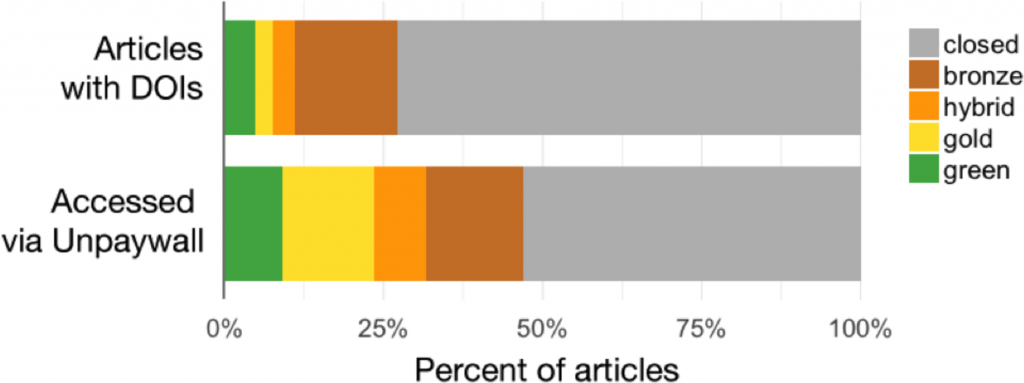OAEvolution: Trends in Open Access and Scholarly Communications
 This week marks the 10 year anniversary of Open Access Week—a global event that strives “to make Open Access a new norm in scholarship and research.” In celebration of this momentous occasion, the University of Ottawa Library asked ScholCommLab co-director Stefanie Haustein about recent trends in open access and scholarly communication. In this interview with the Library’s Communication Advisor Meryem El Marzouki, Stefanie reflects on the past, present, and future of OA in our changing scholarly communication landscape.
This week marks the 10 year anniversary of Open Access Week—a global event that strives “to make Open Access a new norm in scholarship and research.” In celebration of this momentous occasion, the University of Ottawa Library asked ScholCommLab co-director Stefanie Haustein about recent trends in open access and scholarly communication. In this interview with the Library’s Communication Advisor Meryem El Marzouki, Stefanie reflects on the past, present, and future of OA in our changing scholarly communication landscape.
uOttawa Library: How do you see the evolution of open access over the last 5 years?
SH: In the last year, Plan S has certainly shaken up academic publishing. A group of Research Funding and Research Performing Organizations in Europe introduced an ambitious roadmap to make all funded research outputs OA. The fact that Plan S does not allow hybrid OA has been seen by many as a (too) radical change. Since publishers make the scholarly community pay twice when they charge hybrid APCs for OA publication in subscription journals, I think it is a very convincing and very much needed regulation, considering that large publishing houses like Elsevier continue to make profits higher than Apple and Big Pharma on the shoulders of academia.
The extent to which scholarly articles are published OA has continually increased over the last years. A major study conducted for the European Union reported that since 2007 more than 50% of peer-reviewed journal articles are available OA. More conservative estimates report that 45% of articles published in 2015 are OA.

However, what is considered OA beyond green and gold depends on who you ask: Should copies of papers on academic social networks, which often infringe copyright, be considered OA? Should documents on illegal platforms such as SciHub, so-called “black OA,” be included? Or are only articles with a specific free to read and free to reuse license truly OA? A recent study added another colour to the spectrum: bronze OA, for articles that are “free to read on the publisher page, but without any clearly identifiable license”.
uOttawa Library: What is new/special to highlight about open access?
SH: When, in October 2015, the editorial board of the Elsevier journal Lingua resigned over the inability to agree to switch to an OA model and subsequently founded the new OA journal Glossa, a precedent was set for other editorial boards to consider changing to OA. Since then the boards of at least two journals followed suit and left their publisher to flip to OA. I am proud to be part of the former editorial board of the Journal of Informetrics (Elsevier), which stepped down unanimously in January 2019 to found the new OA journal Quantitative Science Studies (MIT Press).
But not all publishers seem resistant to change. One of the latest trends are so-called “transformative agreements,” where publishers agree to make journals OA by shifting from a reader-pays (library subscriptions) to an author-pays model (gold OA with APCs) in an agreed-upon time frame. Much of these agreements to flip journals are also based on Plan S requirements, which stipulate that subscription journals need to fully transition to OA by 2023 in order to be compliant.
uOttawa Library: Do you have any idea of what the future might hold for open access?
SH: I would hope that the scholarly community takes back ownership and control over scholarly publishing by flipping journals and demanding OA publication with affordable and transparent APCs. Taking back control of scholarly communication infrastructure does not stop at OA publishing but extends to open data and open citations.
“I would hope that the scholarly community takes back ownership and control over scholarly publishing by flipping journals and demanding OA publication with affordable and transparent APCs.”
Scholars need to understand that without the scholarly community submitting, reviewing, and editing manuscripts, a journal is nothing but a fancy website!
This interview was conducted and edited by Meryem El Marzouki, Communication Advisor at the University of Ottawa Library. If you are in Ottawa, check out and participate in uOttawa Library’s OA week events.
